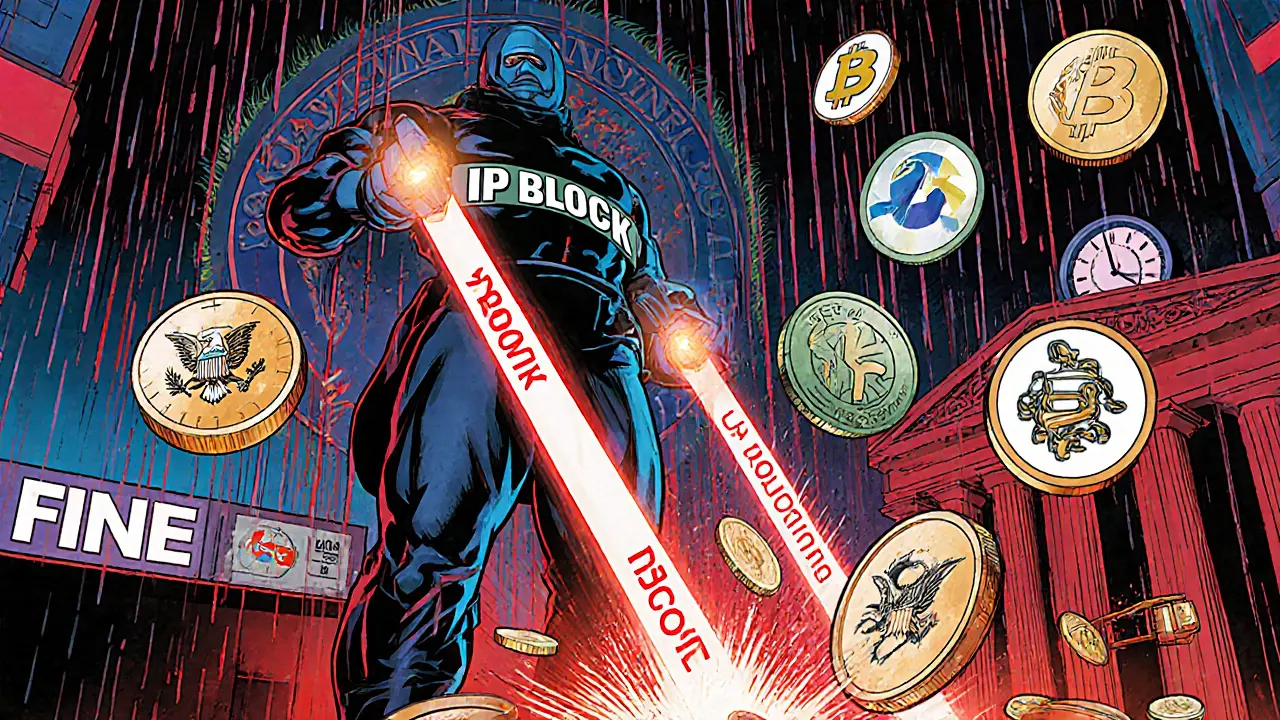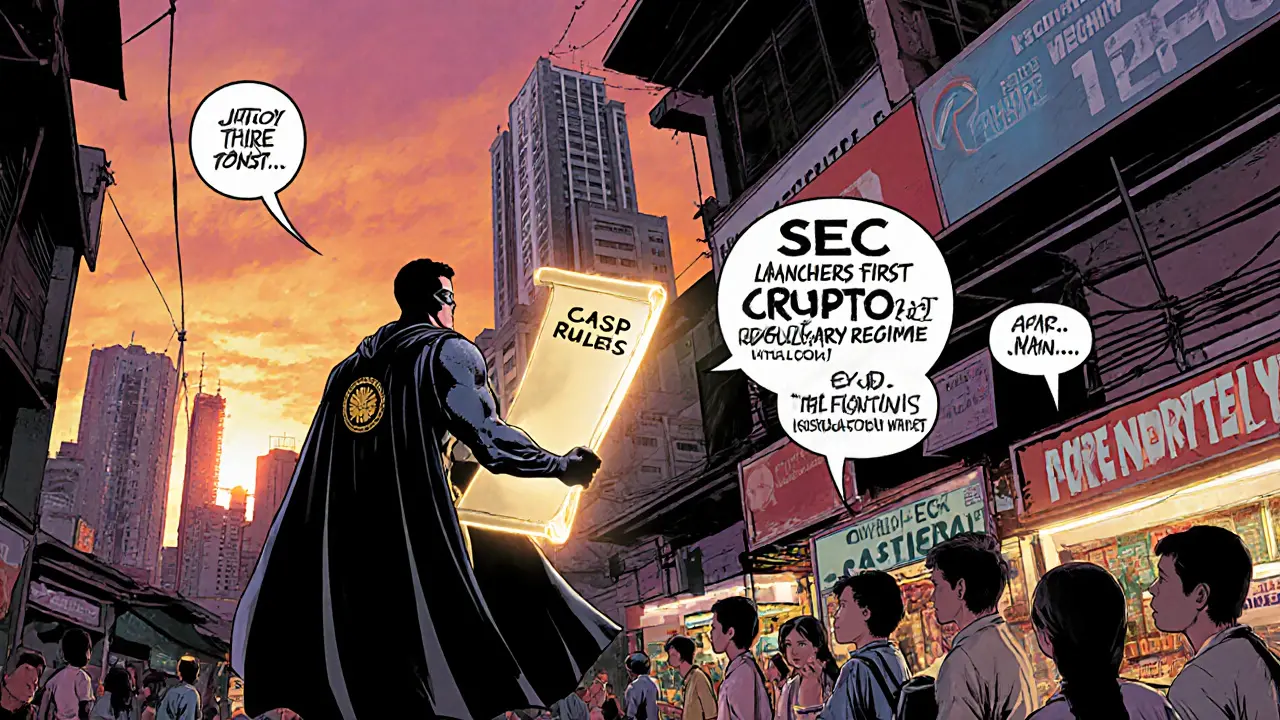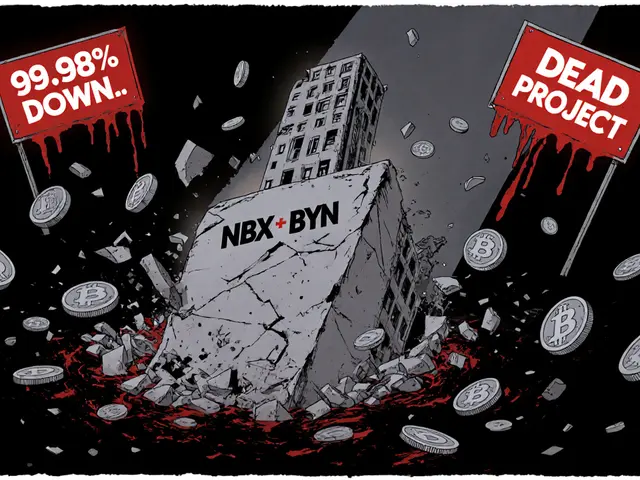SEC Philippines Crypto Enforcement Actions: What’s Happening and What It Means
Philippines CASP Compliance Calculator
CASP Registration Requirements
The SEC Philippines requires crypto service providers to meet strict requirements including a minimum paid-up capital of 100 million PHP (≈ $1.8 million USD). This calculator helps you understand the financial requirements and compare with other jurisdictions.
Required Capital: 100,000,000 PHP (≈ $1,800,000 USD)
Minimum paid-up capital required for CASP registration in the Philippines
Time to Meet Requirement
Comparison with Other Jurisdictions
| Country | Requirement | Equivalent to PHP | Equivalent to USD |
|---|---|---|---|
| Philippines | 100 million PHP | 100,000,000 PHP | ≈ $1,800,000 |
| Thailand | 10 million THB | ≈ 102,000,000 PHP | ≈ $1,836,000 |
| Singapore | No minimum capital | N/A | N/A |
Important Compliance Information
Non-compliance with CASP regulations may result in:
- Website blocking by NTC
- App store removals
- Fines up to 10,000,000 PHP per violation
- Daily penalty of 10,000 PHP for ongoing violations
- Potential criminal liability up to 2,000,000 PHP and 5 years imprisonment
The SEC has already blocked platforms like OKX, Bybit, KuCoin, and Kraken for non-compliance.
In July 2025, the Philippines Securities and Exchange Commission (SEC) rolled out its first full‑blown crypto‑asset regulatory regime. The move was sparked by high‑profile collapses like FTX and a 2024 crackdown on Binance that forced the exchange out of the country. Since then the SEC has been busy naming unregistered platforms, blocking their websites, and slapping hefty penalties. This article walks through the new rules, the latest enforcement actions, and what they mean for users, local businesses, and the broader market.
Understanding the CASP Framework
The core of the SEC’s approach is the Crypto‑Asset Service Provider (CASP) classification. Under SEC Memorandum Circular No. 4, Series of 2025 (the "CASP Rules") and SEC Memorandum Circular No. 5, Series of 2025 (the "Guidelines"), any entity that offers crypto‑related services to Filipinos must register as a domestic corporation.
- Minimum paid‑up capital:100million PHP (≈$1.8million USD).
- Physical office in the Philippines.
- Monthly financial statements submitted to the SEC’s PhiliFintech Innovation Office.
- Strict segregation of customer funds - at least 95% of assets must stay in cold storage.
- AML monitoring for transactions >50,000PHP (≈$900 USD) using blockchain analytics tools.
- Platform uptime ≥99.5% and withdrawals processed within 72hours.
DeFi protocols are currently exempt, but CASPs can’t offer yield products above 20% APR without special approval. The rules are not a ban on buying or selling crypto; they are a safety net designed to keep investors’ money out of the reach of rogue operators.
Key Requirements for Crypto Service Providers
Getting a CASP license isn’t just paperwork. Companies must prove they meet a checklist of technical and governance standards:
- Proof of the 100million PHP capital base.
- Detailed business plan outlining target market, products, and revenue model.
- Risk‑disclosure matrix that maps possible fraud, market‑manipulation, and cyber‑attack scenarios.
- Anti‑money‑laundering (AML) policies that align with the Philippines’ Anti‑Money Laundering Act.
- ISO27001‑compliant cybersecurity framework and third‑party audit reports.
- Multi‑factor authentication for all user accounts and a cold‑wallet strategy covering at least 95% of customer funds.
Applications are filed through a dedicated online portal that offers video tutorials in English and Tagalog. Once the dossier is complete, the SEC’s enforcement unit typically processes it within 30 business days, though early adopters have reported an average of 45 days.
Recent Enforcement Actions: Who’s Been Targeted?
In August 2025 the SEC released a public advisory naming ten major exchanges operating without a CASP licence. The list includes:
- OKX
- Bybit
- KuCoin
- Kraken
- LBank
- CoinW
- Binance (previous year’s enforcement)
- Etc.
These actions mirror the 2024 Binance case, where the SEC coordinated with the National Telecommunications Commission (NTC) to block the platform’s website, pushed app‑store removals, and gave users a 90‑day window to pull their funds. About 78% of Binance users complied within that period, according to the SEC’s post‑enforcement report.
For the new batch, the SEC is using the same multi‑pronged strategy:
- Domain and IP blocking through the NTC.
- Requests to Google Play and Apple App Store for takedown.
- Public warnings on the SEC website and social media channels.
- Fines ranging from 50,000PHP to 10millionPHP per violation, plus a daily penalty of 10,000PHP for ongoing non‑compliance.
- Potential criminal liability of up to 2millionPHP and five years imprisonment under the Securities Regulation Code.
Attorney Paolo Ong, assistant director of the Enforcement and Investor Protection Department, said the rules give the SEC “more teeth” and allow it to be “assertive in going after unregistered platforms.”

How the Enforcement Process Works
When the SEC spots an unregistered platform, it follows a set timeline:
- Investigation - The Cyber and Forensics Division gathers technical evidence, often using blockchain analytics to trace illicit flows.
- Notice - The platform receives a 30‑day notice to cease operations or secure a licence.
- Blocking - If the notice is ignored, the NTC orders ISP-level blocks, effectively making the website inaccessible from Philippine IP addresses.
- Penalties - Fines are levied per violation. Daily penalties accrue until compliance is achieved.
- Criminal Referral - In severe cases, the SEC refers the matter to the Department of Justice for prosecution.
Since the 2024 Binance crackdown, reported crypto‑related fraud cases have dropped 67% according to the Philippine National Police’s 2024 Cybercrime Division report. The early impact suggests that enforcement does curb the most egregious scams.
Impact on Users and the Market
For everyday Filipinos, the new rules bring both pros and cons. On the plus side, forced fund segregation and mandatory audits mean that if an exchange collapses, users’ money is more likely to be protected. The SEC’s upcoming Crypto‑Asset Investor Compensation Fund, slated for Q12026, will be funded by a 0.05% registration fee on gross revenue, potentially amassing 250millionPHP (≈$4.5million USD) a year.
On the downside, the 100millionPHP capital requirement bars many smaller players from entering the market. Industry analysts estimate that fewer than 5% of the 240 crypto platforms currently operating in the Philippines meet the threshold. As a result, transaction volume could shrink 35‑40% in the short term. A University of the Philippines working paper predicts a 30‑40% dip in retail participation, though overall market stability should improve.
Remittance‑focused users-who make up 68% of crypto activity in the country-stand to gain the most. Their typical transaction is about $287, and protecting those funds from fraud aligns with the SEC’s stated goal of shielding ordinary investors.
What Businesses Need to Do Now
If you run a crypto exchange, wallet service, or brokerage that serves Filipino customers, here’s a quick checklist to stay on the right side of the law:
- Verify domestic incorporation and secure a physical office address.
- Raise the required 100millionPHP paid‑up capital or partner with a local entity that meets the threshold.
- Implement blockchain analytics tools that flag transactions above 50,000PHP.
- Separate customer funds and store at least 95% in cold wallets.
- Obtain ISO27001 certification or a comparable cybersecurity audit.
- Prepare a full risk‑disclosure matrix and AML policy for submission.
- Submit the application through the SEC’s CASP portal and monitor the 30‑day processing window.
- Plan for ongoing compliance: monthly reports, regular security audits, and a 72‑hour withdrawal SLA.
Failure to meet any of these items could result in the same blocking actions that hit OKX and Bybit. The enforcement strategy is clearly designed to make non‑compliance more costly than compliance.

Looking Ahead: Compensation Fund and DeFi Regulation
Beyond the immediate crackdown, the SEC has signaled two major developments:
- Investor Compensation Fund - Expected to start paying out in 2026, the fund will act like a safety net for users whose licensed platforms fail despite meeting the rules.
- DeFi oversight - By 2027 the SEC plans to extend its reach to decentralized finance protocols, focusing on smart‑contract risks and liquidity‑pool vulnerabilities.
Commissioner Maria Lourdes Limgenco told the Senate in July 2025 that “the next phase of regulation will address smart contract risks and liquidity pool vulnerabilities.” This suggests that even platforms currently exempt because they are purely decentralized will eventually face registration or licensing requirements.
Regional peers are moving in a similar direction. Indonesia introduced its own registration rules in January 2025, and Malaysia tightened licensing in March 2025. The Philippines’ approach is stricter than Singapore’s and more nuanced than Thailand’s, which does not demand full domestic incorporation.
Quick Takeaways
- The SEC’s CASP framework is now the law of the land for any crypto service targeting Filipinos.
- Non‑compliant platforms face website blocking, app removal, and fines that can reach 10millionPHP per violation.
- Users benefit from mandatory fund segregation and an upcoming compensation fund, but may lose some platform choices.
- Businesses must secure 100millionPHP capital, a physical office, and robust AML and cybersecurity controls to stay licensed.
- Future regulations will likely pull DeFi protocols into the compliance net by 2027.
All of this adds up to a pivotal moment for crypto in the Philippines. Whether you’re a trader, an entrepreneur, or just curious about the market, understanding Philippines crypto enforcement is the first step toward making informed decisions.
| Requirement | Philippines (SEC) | Thailand | Singapore |
|---|---|---|---|
| Domestic incorporation | Yes, 100M PHP paid‑up capital | Local registration only | Local entity optional |
| Minimum capital | 100M PHP (~$1.8M) | 10M THB (~$300K) | None for licensing |
| Fund segregation | ≥95% cold storage | Recommended | Not mandated |
| AML transaction monitoring threshold | 50,000 PHP (~$900) | 100,000 THB (~$3,000) | Varies by institution |
| Compliance reporting frequency | Monthly to PhiliFintech Office | Quarterly | Annual |
Frequently Asked Questions
Do the SEC rules ban crypto trading in the Philippines?
No. The rules require service providers to register and follow safety standards, but buying, selling, and holding crypto remain legal for individuals.
What happens if I keep using an unregistered exchange?
The SEC can block the website, ask app stores to remove the app, and levy fines on the platform. Your access may be cut off, and you could lose the ability to withdraw funds safely.
How can I tell if an exchange is SEC‑registered?
The SEC maintains a public CASP registry on its website. Look for the “CASP License No.” and verify the company’s physical address in the Philippines.
What are the penalties for non‑compliance?
Fines range from 50,000 to 10million PHP per violation, plus a daily penalty of 10,000 PHP for continued breaches. Criminal liability can reach 2million PHP and up to five years in prison.
Will DeFi platforms be regulated soon?
The SEC plans to extend its framework to DeFi protocols by 2027, focusing on smart‑contract security and liquidity‑pool risks.






13 Comments
Anjali Govind
October 12 2025The 100 million PHP paid‑up capital rule is a real game‑changer for crypto firms in the Philippines. It forces startups to either secure serious funding or team up with an established local player. This should boost consumer confidence because the capital buffer can cover operational hiccups. At the same time, it might shrink the ecosystem by pricing out smaller innovators. Overall, it looks like a push for stability rather than stifling growth.
Sanjay Lago
October 12 2025yeah totally get u Anjali, this move actually gives a clear signal that the SEC means business. smaller teams gonna have to think smart about partnerships or fundraising 💡. it might seem tough but it also weeds out the fly‑by‑night ops. i guess the market will self‑balance once the legit players step in.
Annie McCullough
October 12 2025the crackdown is totally overkill its like slapping a hammer on a screwdriver the crypto space thrives on low‑friction and this heavy hand kills innovation nobody needs another bureaucracy 😜 the enforcement could push traders offshore and hurt the local economy.
Carol Fisher
October 12 2025🇵🇭 We must protect our people from predatory platforms! The SEC is finally showing the resolve needed to keep Filipino investors safe. Allowing unregistered exchanges to operate is a betrayal of national interests. Strong action sends a clear message: fraudsters will face the full force of the law. 💪
Melanie Birt
October 12 2025Hey folks, let me break down what you need to do to stay on the right side of the SEC’s new CASP rules. First, make sure your company is incorporated in the Philippines and has a physical office address-no virtual office shortcuts. Second, you’ll need to raise the full 100 million PHP paid‑up capital, which can be done either through equity, a capital injection from a parent company, or a joint‑venture with a locally‑licensed partner. Third, set up a robust AML framework: any transaction above 50,000 PHP must be flagged and reported, and you should integrate a blockchain analytics tool like Chainalysis or Elliptic to monitor suspicious flows. Fourth, separate customer funds from operational cash and keep at least 95 % of those funds in cold storage; the remaining 5 % can sit in a hot wallet for withdrawals, but you must keep detailed ledgers for both. Fifth, obtain ISO‑27001 certification or an equivalent security audit to satisfy the SEC’s cybersecurity requirements; this includes MFA for all user accounts and regular penetration testing. Sixth, draft a comprehensive risk‑disclosure matrix that outlines potential fraud, market‑manipulation, and cyber‑attack scenarios, and get it reviewed by a third‑party auditor. Seventh, prepare detailed financial statements to be submitted monthly to the PhiliFintech Innovation Office-these should include balance sheets, profit & loss, and cash flow statements, all audited. Eighth, once your dossier is complete, file the application through the SEC’s online CASP portal; you’ll receive a 30‑day processing window, after which the SEC typically responds within 45 days. Ninth, after approval, maintain ongoing compliance by submitting monthly AML reports, performing quarterly security audits, and ensuring a 72‑hour withdrawal SLA for users. Finally, keep an eye on the upcoming Crypto‑Asset Investor Compensation Fund which will start in 2026; you’ll need to contribute a 0.05 % fee on gross revenue to stay eligible for potential payouts. By following these steps, you’ll minimize the risk of domain blocks, app removals, or hefty fines. 😊
Lady Celeste
October 12 2025Regulation is coming fast.
Scott Hall
October 12 2025True that, the pace is relentless but it’s worth the patience. Stay chill and keep adapting-you’ll ride the wave.
Jade Hibbert
October 12 2025Oh great another rule to track… like we needed more paperwork 😂 sorry my bad i typed “paperwork” wrong but you get the point.
Hanna Regehr
October 12 2025Even if you think the enforcement is harsh, think about the long‑term confidence it builds. When users know their funds are protected by strict segregation and a future compensation fund, they’re more likely to stay active. That translates into higher volume and better liquidity for compliant platforms. So, while the short‑term pain is real, the payoff could be a healthier market overall. Keep pushing forward, and use this as a catalyst to upgrade your compliance tech stack.
Lena Vega
October 12 2025Good points, Melanie. Keeping it concise.
Laura Myers
October 13 2025The drama of the SEC’s crackdown reads like a thriller: secret investigations, sudden domain blocks, and looming fines. Yet, behind the spectacle lies a serious push for investor protection. If the market can adapt, the narrative might shift from fear to confidence.
hrishchika Kumar
October 13 2025Think of this as a vibrant tapestry woven with threads of caution and ambition. The Philippines is painting a bold canvas-bright colors of opportunity mingling with the shadows of regulation. It’s a cultural dance where innovators must learn the steps of compliance while still expressing their creative rhythm.
Jon Asher
October 13 2025Sounds good, let’s keep it simple and stay compliant together.